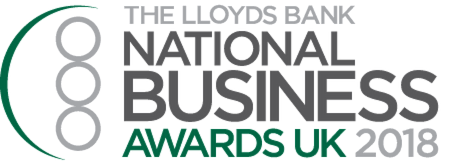There are many variations of passages of Lorem Ipsum available, but the majority have suffered alteration in some form, by injected humour, or randomised words which don’t look even slightly believable.

Paragraph block
Heading block
Pull Quote cloud news blog
There are many variations of passages of Lorem Ipsum available, but the majority have suffered alteration in some form, by injected humour, or randomised words which don’t look even slightly believable.
There are many variations of passages of Lorem Ipsum available, but the majority have suffered alteration in some form, by injected humour, or randomised words which don’t look even slightly believable.
- There are many variations of passages of Lorem Ipsum available,
- but the majority have suffered alteration in some form, by injected humour, or randomised words which don’t look even slightly believable.

Lorem Ipsum has been the industry’s standard dummy text ever since the 1500s, when an unknown printer took a galley of type and scrambled it to make a type specimen book. It has survived not only five centuries, but also the leap into electronic typesetting, remaining essentially unchanged. It was popularised in the 1960s with the release of Letraset sheets containing Lorem Ipsum passages, and more recently with desktop publishing software like Aldus PageMaker including versions of Lorem Ipsum.

There’s no escaping the fact that data is universal; enabling our choices, fuelling our economy, informing decisions and shaping our ideas. It’s influence, driven and shaped by the digitalisation of our culture, is only set to expand as we enter the next decade. As the world becomes ever more connected, the sheer volume of available data will continue to grow at a substantial rate. So too will the range and variety of that data. With that comes huge opportunity for organisations to use data-driven solutions to not only deliver better outcomes for their customers, but take on some of the biggest challenges in society. At Experian, we believe data has the power to change the world for the better, and remain committed to creating new ways to drive innovation for the benefit of everyone. That’s why we’re proud to sponsor the very first ‘Data Excellence Award’ at the National Business Awards in November, championing the best examples of those working at the forefront of data and analytics. The ‘Experian Data Excellence Award 2018’ is designed to recognise organisations that are unlocking the power of data to create opportunities for people, businesses and society. If you understand that the value in data goes far beyond regulatory compliance, this is the award for you. It’s hugely exciting to be part of this year’s awards and we are looking forward to seeing some high-quality entries showcasing data excellence. Interested? Then visit the National Business Awards website for more information.

Today we announced our results for the last financial year. The results and the business growth are strong, and a reflection of the actions we have taken to build our success. While we posted some very good results – 8% total revenue growth for the year is great – but it is the people, the strategy and the execution behind those numbers that we are most proud of. In recent years, we intentionally set a course that started with a brand promise to power new opportunities for our clients while creating a better tomorrow for consumers and society. In the last year, towards our quest to achieve that promise, we have made significant progress: We have invested in technologies like API and analytical sandboxes to help us better serve clients worldwide and effectively and safely manage the data and decisioning tools that help our clients succeed; We have made key investments to add new sources of data – including the acquisition of Clarity Services in North America and our continued strategy to look at mobile phone data in EMEA and Asia Pacific to help those who are excluded from the traditional financial system; We have introduced new products for consumers that help them better protect their identities and help them effectively manage their financial profile and credit standings to help ensure financial access in today’s credit economy; and We have created innovations such as our “Text for Credit” offering, which not only makes it easier for consumers to have a seamless credit application process, but it also enables lenders to have a more productive relationship with consumers who are looking for loans. Those are just some of the efforts that underscore our financial results. But more important than the positive results is the fact that we achieved this growth while also staying true to our brand promise. We are doing great things around the world – for businesses, for people and for society. The possibilities and potential of data have never been more exciting or life-enhancing – and our belief remains that data is central to how we all live and has the potential to transform all our lives for the better. The work our nearly 17,000 employees are doing – and have been doing – is indeed transformational. And that is one result for which we couldn’t be prouder.

As the owner of one of those increasingly popular voice-controlled assistants, I get a weekly email from the supplier suggesting new things to ask it to do or help with. Rather conveniently, this week’s update arrived this morning and includes the suggestion: “[Hello], can you do maths?” I use the word ‘conveniently’ because among the various tasks on my to-do list today is ‘write a short blog about numeracy’. So now I have an introduction. Like literacy, numeracy – understanding and being able to apply numbers – is a vital life skill. They are both key foundations of our education from the earliest of ages and go on to support opportunity and achievement throughout our schooling, into the world of work and beyond. Low levels of numeracy in adult life can be a major obstacle to success. Most employers require at least basic maths skills. And if you struggle with numbers, making successful financial decisions about the money that going to work generates will be very challenging. But this is the reality for many adults today. In the UK, almost half of us possess the maths skills expected of an 11 year old. This is according to National Numeracy, a charity that champions the importance of good numeracy and provides tools to help people improve. So when National Numeracy asked Experian to support the UK’s first National Numeracy Day on 16 May we were delighted to say yes. I’m certainly looking forward to working alongside a number of other big brands as well as numeracy ambassadors Rachel Riley and Martin Lewis. It’s a great fit for Experian, a company with a long track record of supporting initiatives designed to help people make successful decisions, particularly around personal finances. Our learning resource Values, Money & Me is already used in primary-school classrooms around the country to help cement good financial habits from an early age. Similarly, millions of adults track the health of their credit with the help of a free Experian account, and use the built-in eligibility features to secure better deals on financial products. Like others, we firmly believe that maths skills and financial success are closely linked, so we’re delighted to be helping support and promote National Numeracy Day. We’ll be encouraging as many people as possible to tackle the National Numeracy challenge and, where necessary, to take follow-up steps to brush up on their maths skills and, as a result we hope, improve their financial futures. Written by: James Jones, Head of Consumer Affairs, UK&I
In this article…
First Heading
Lorem Ipsumis simply dummy text of the printing and typesetting industry. Lorem Ipsum has been the industry’s standard dummy text ever since the 1500s, when an unknown printer took a galley of type and scrambled it to make a type specimen book. It has survived not only five centuries, but also the leap into electronic typesetting, remaining essentially unchanged.
It was popularised in the 1960s with the release of Letraset sheets containing Lorem Ipsum passages, and more recently with desktop publishing software like Aldus PageMaker including versions of Lorem Ipsum
- test1
- test1

Second Heading
It is a long established fact that a reader will be distracted by the readable content of a page when looking at its layout. The point of using Lorem Ipsum is that it has a more-or-less normal distribution of letters, as opposed to using ‘Content here, content here’, making it look like readable English.
Many desktop publishing packages and web page editors now use Lorem Ipsum as their default model text, and a search for ‘lorem ipsum’ will uncover many web sites still in their infancy. Various versions have evolved over the years, sometimes by accident,
How Experian can help with card fraud prevention and detection
Contrary to popular belief, Lorem Ipsum is not simply random text. It has roots in a piece of classical Latin literature from 45 BC, making it over 2000 years old. Richard McClintock, a Latin professor at Hampden-Sydney College in Virginia, looked up one of the more obscure Latin words, consectetur, from a Lorem Ipsum passage, and going through the cites of the word in classical literature, discovered the undoubtable source.
Lorem Ipsum comes from sections 1.10.32 and 1.10.33 of “de Finibus Bonorum et Malorum” (The Extremes of Good and Evil) by Cicero, written in 45 BC. This book is a treatise on the theory of ethics,
very popular during the Renaissance. The first line of Lorem Ipsum, “Lorem ipsum dolor sit amet..”, comes from a line in section 1.10.32.

Fourth Heading
Lorem Ipsum has been the industry’s standard dummy text ever since the 1500s, when an unknown printer took a galley of type and scrambled it to make a type specimen book. It has survived not only five centuries, but also the leap into electronic typesetting, remaining essentially unchanged. It was popularised in the 1960s with the release of Letraset sheets containing Lorem Ipsum passages, and more recently with desktop publishing software like Aldus PageMaker including versions of Lorem Ipsum.
